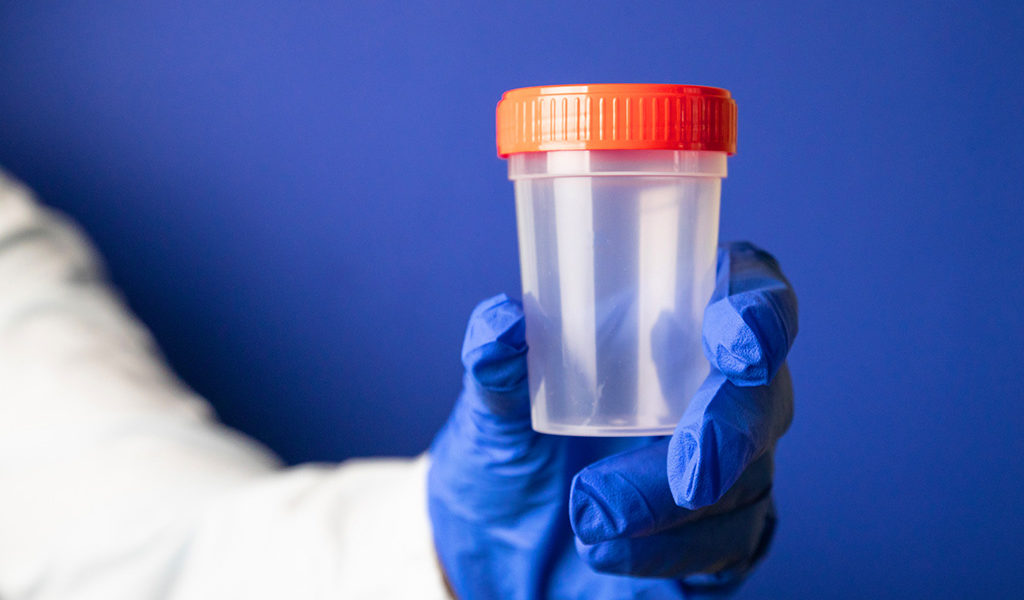What can an employer do when someone leaves without giving their required notice? A recent Employment Relations Authority decision addressed this question. The employer was awarded $3,000 from their ex-employee for his failure to give notice without reasonable cause.
Urine-based Drug Testing Challenged

ERA agreed employees could choose an oral swab test instead
Many of our clients have had workplace drug and alcohol testing in place for a long time and the use of a testing regime is a practice generally understood and accepted by most employees.
However, one of the challenges with testing, in particular for certain types of drugs, is whether or not the test results can indicate a level of impairment. Therefore, the type of testing method used, the reliability of the method, your reasons for testing and what will occur if a positive result is produced are often scrutinised when employee testing is utilised.
Fortunately, there is case law (in addition to employment and health and safety legislation) to help employers know what approach and what level of detail they need to include in drug and alcohol testing policies and procedures.
The Employment Relations Authority’s January 2021 decision in Vulcan Steel Ltd v Manufacturing and Construction Workers’ Union (MCU) is one such case. It addressed whether an employee party to the collective employment agreement (CEA) could choose an oral test as opposed to a urine test if asked to take a drug test by their employer.
The CEA included some drug and alcohol testing provisions. The MCU claimed Vulcan Steel were in breach of the CEA by advising that only urine testing would be used and that it had engaged in deceptive and misleading behaviour in breach of good faith.
The MCU and workers preferred oral swab testing, however Vulcan Steel preferred urine testing and felt they could choose the method of drug testing used. Vulcan Steel sort the Authority’s declaration that it could initiate disciplinary procedures if a worker did not provide the type of sample required by their chosen testing method in the absence of a reasonable excuse. They also sought a declaration that not providing a urine sample because the worker considers it demeaning, intrusive or an unreasonable intrusion into their privacy are not reasonable excuses for a refusal or failure to provide a sample. The Authority said it would make no determination about whether a disciplinary process could be applied in the circumstances that Vulcan Steel raised, as it said those might be matters examined in the future, after first determining the party’s rights under the CEA.
Vulcan Steel’s drug and alcohol testing policy said that they will utilise hair and/or urine and/or saliva test techniques, as outlined in their “Drug, Alcohol & Substance Procedure” document. The policy stated a zero tolerance to the possession or use of drugs for all employees, and therefore an employee would be considered under the influence of drugs, alcohol, or any other substance of abuse if they have a result above zero of alcohol per litre or positive detection of a drug/metabolite from an accredited testing laboratory. The company undertook random, reasonable cause, post incident and return to work testing. The policy said that a breach of policy, following a disciplinary process, may result in disciplinary action, including dismissal.
Further, the policy noted that a refusal to provide a sample, without reasonable excuse, may be treated as a breach of policy. The policy referenced the AS/NZS 4308:2008 and 4760:2006 standards in regards to specimen collection and quantification of drugs in urine and in oral fluid respectively. The company said that on-site urine testing was conducted to minimise intrusion into the worker’s privacy while ensuring the integrity of the specimen collection. Possession, consumption, sale or transfer of drugs or alcohol on its property was identified as conduct amounting to serious misconduct.
Expert evidence submitted by Vulcan Steel advised that urine testing detects a wider range of drugs, across a longer window of time since use of the drug/s, with fewer false-negatives (in comparison to oral swab testing). A difficulty with confirmation testing of non-negative oral swab specimens is that samples have to be sent to Australian laboratories as no New Zealand laboratories provide this service at present.
The union’s expert was of the opinion that urine testing and oral fluid testing each have acknowledged and well-understood strengths and weaknesses. Where knowledge of “recent use” is more important than knowledge of “any use”, they said oral fluid testing was considered more useful.
When looking at the detail examined by the ERA in their determination, the CEA clauses, policy and procedures could have been considered very detailed and thorough. They certainly appear to have covered the type of content we would expect to see included, from what was mentioned in the ERA determination. The Authority Member, Philip Cheyne, noted that he accepted that Vulcan Steel was motivated to meet and exceed compliance with applicable legal obligations in regards to safety.
However, an oral swab test had been used by Vulcan Steel on one occasion, and previous iterations of the company’s policy had explicitly stated that urine testing was their preferred manner of testing, and that had since been removed. These two factors were seen to be evidence of Vulcan Steel’s subjective intentions, and as factors that did not contribute to reaching an objective interpretation of the current policy and procedure.
The Authority concluded that the procedure, particularly where it asked that the employee consent to the relevant method(s) of drug testing, gave the employee, not the employer, the right to choose the method of testing. They also concluded that ultimately both testing methods were capable of achieving the purposes of the policy and compliance with the Health and Safety at Work Act 2015, specifically whether an employee was using drugs in the workplace or reporting to work under the influence of drugs.
The Authority had also noted that there was no such procedure (seeking consent for the testing method) in regard to alcohol tests. The Authority said that while expelling breath for the purpose of alcohol testing intrudes less into personal privacy (than urine tests), it was nonetheless still part of a test under the company’s policy and procedure, and therefore requiring consent of the method used could also be expected to be included for alcohol tests if the drug testing procedure was only about seeking consent for a test rather than also seeking consent of the method.
This case highlights the need for a very comprehensive policy that details very thoroughly, amongst other things, consent and privacy issues, as well as testing methodology.
Do not hesitate to contact us if you would like some assistance with developing your drug and alcohol testing policy or procedures, or to update it following this determination.
If you would like some further information about meeting your Privacy Act obligations, you might like to attend our upcoming Privacy Act webinar. For further details about the webinar, please click here.


